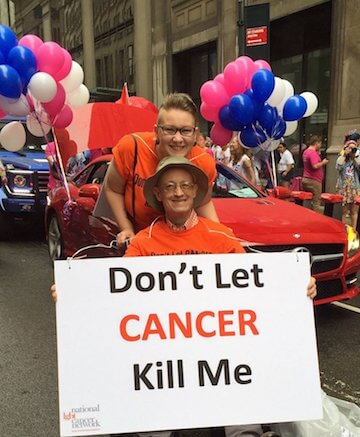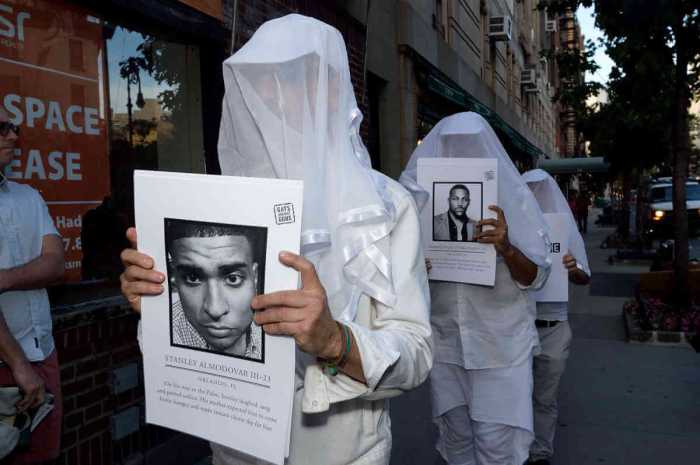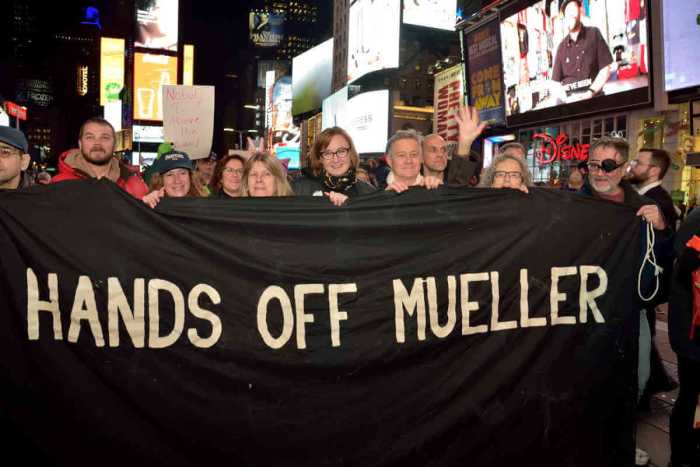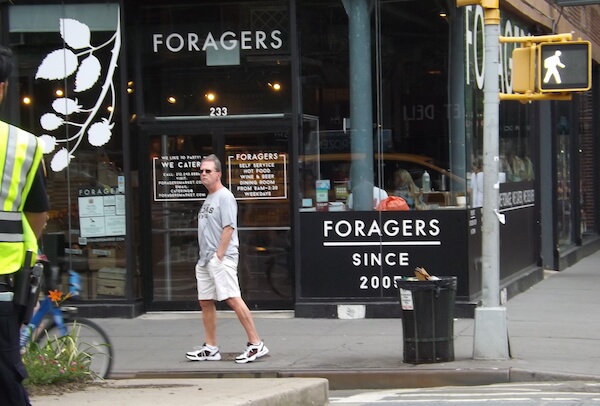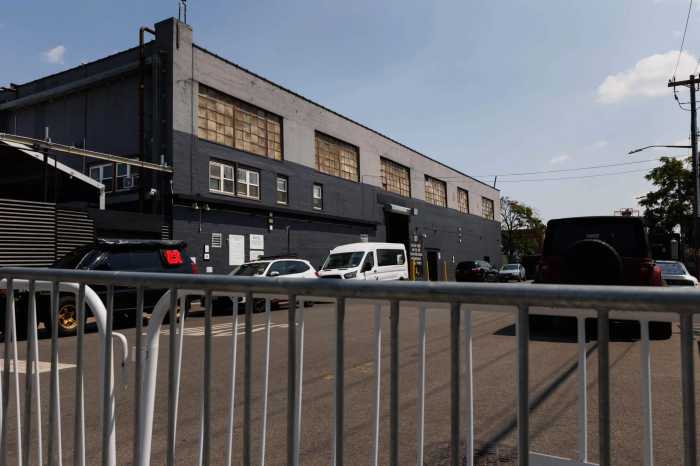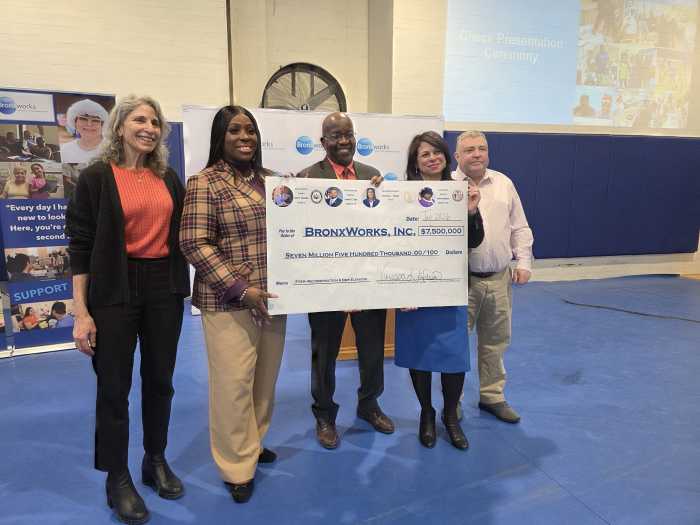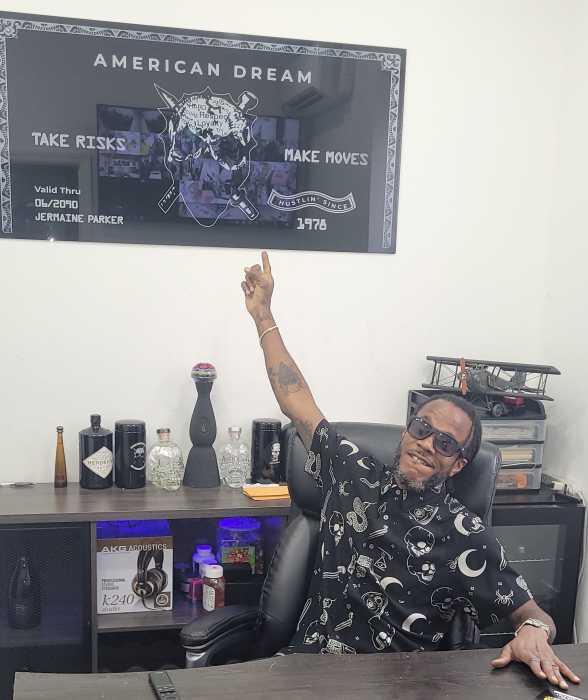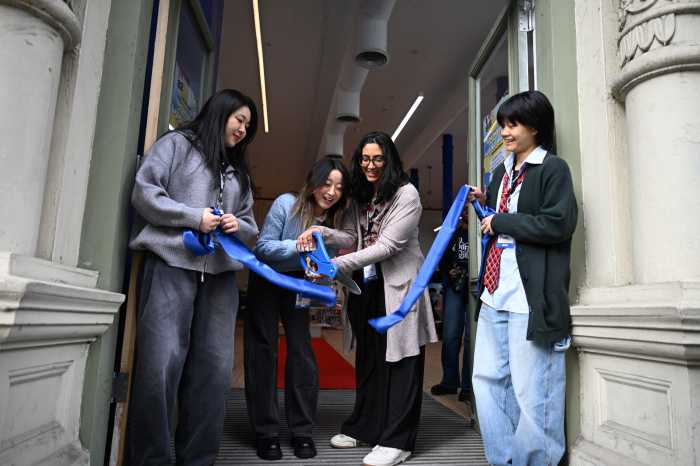Jay Kallio, 1955-2016. | FACEBOOK.COM
Jay Kallio, who died September 30 at age 61 in New York, was an activist’s activist on the front lines of the grassroots LGBT movement and other social justice causes for more than 40 years.
Kallio came to New York as a homeless lesbian — Joy Kallio — who quickly found herself at the center of Lesbian Feminist Liberation (LFL) in the early post-Stonewall movement of the 1970s. Kallio finished life after a titanic battle with multiple cancers as Jay Kallio, a transgender man who put himself at the barricades wherever there was injustice against almost anyone. Within the past couple of months, despite excruciating pain, Kallio went to Washington to march with Gays Against Guns, to Pennsylvania to canvas for Hillary Clinton, and to Syracuse to table for Compassion & Choices — a group that advocates for terminally ill people — drumming up support for the Medical Aid in Dying Act in Albany.
He was only stopped by a tumor on his spine that paralyzed him from the waist down and, ultimately, ended his life. He was first diagnosed with breast cancer in 2008, but that diagnosis was withheld from him at first, a situation compounded by a transphobic surgeon who wanted to send him to a psychiatrist instead of healing him, something he spoke about on HuffPost Live.
Joy transitioned to Jay at age 50 in 2006, getting hormone treatments but never seeking gender confirmation surgery.
“I accept my body as I was born,” he told ABC News.
A stalwart lesbian leader became a fierce transgender voice at age 50
Coming to New York City in the early ‘70s after being fired from a job with Outward Bound upstate for being lesbian, Kallio met Eleanor Cooper at the Firehouse at 99 Wooster Street in Soho, the city’s first gay and lesbian community center. Cooper was a leader in LFL and later of the Coalition for Lesbian and Gay Rights that passed New York City’s gay rights bill in 1986. Kallio became LFL’s program coordinator. The couple were together for almost 36 years, including Cooper’s many later years in a nursing home. They were married in Cooper’s hospital room in 2008 by the Reverend Pat Bumgardner, pastor of the Metropolitan Community Church of New York, because Cooper was unable to travel outside New York State to legally marry.
Veteran gay activist Tom Smith, Kallio’s longtime friend, said, “After Eleanor died, Jay was very involved in Physicians for Single Payer and the right-to-die movement. Jay was really good at deciding what issues and goals he wanted to work on and they were realistic” — including organizing a demonstration to get access to immunotherapy that brought Jay back from the brink of death earlier this year. “He worked on doable things — usually on someone else’s behalf.”
Breast cancer was not the only cancer Kallio was forced to confront.
“This damn lung cancer that is now killing me is because of that toxic smoke we first responders breathed for so many months” after the 2001 World Trade Center attacks, Kallio posted on Facebook this past September 11.
Kallio was a die-hard Hillary Clinton supporter, first against Barack Obama in 2008 and then against Bernie Sanders this year. His activism included a stint as a board member of the Stonewall Democratic Club of New York City.
Jay Kallio with Massachusetts Senator Elizabeth Warren. | FACEBOOK.COM
Kallio was born in Rahway, New Jersey, on August 17, 1955 and was abandoned by his biological father at age two. His mother then married Bob Kallio of Edison, New Jersey, and Joy was given his name though the biological father never consented to Bob adopting Joy as he wanted to.
Bob Kallio remembers Joy coming out while still at J.P. Stevens High School in Edison and said Joy “was brilliant, with a photographic memory.” Half-brother Bill Kallio said Joy “had perfect SAT scores.”
Joy’s early jobs included work as a lighting designer Off-Off-Broadway and in a printing business for six years. Joy trained in teaching Shiatsu massage but had her back broken in a demonstration where too much pressure was applied, Bob Kallio said — one of many health problems that would plague Jay’s life.
Bob Kallio said he, Joy, and her brothers “all worked in the Edison first aid squad,” a commitment that Joy carried over to working in the Emergency Medical Services in New York and as an auxiliary police officer for a time.
“I want people to remember how caring Jay was, how devoted” to his causes, Bob said.
Kallio produced a concert with Sweet Honey in the Rock and Holly Near in the early 1970s, “when women’s music was in great need of support, as a benefit concert for Lesbian Feminist Liberation,” Jay wrote. “I am proud to have be a small part of the support for women’s culture with the many programs and concerts I produced in our efforts to create community at a time when lesbian feminists were stigmatized and reviled, and there was no safe place for us to congregate, except for mafia bars.”
Kallio is survived by Bob and Bill Kallio, as well as half-brother Bob, and a legion of friends and comrades.
Bertis Shankle-Reyes, the manager of volunteers and outreach at SAGE, which Jay belonged to, posted on Facebook, “Jay’s spirit should be at SAGE today. The [death] notice is posted on the wall and everyone who walks by has something nice to say about him. He will be so missed.”
In August, Kallio posted a quote from youth advocate Josh Shipp: “You either get bitter or you get better. You either take what has been dealt to you and allow it to make you a better person or you allow it to tear you down. The choice does not belong to fate, it belongs to you.” To that quote, Jay added, “The choice I always make is very clear to me! I’m very lucky because it seems to come easy for me, no problems!”
May we all have such optimism in our final days.
Jay Kallio in this year’s LGBT Pride March, as he suffered from the cancer to which he succumbed on September 30. | FACEBOOK.COM
Poet and theater artist Bonnie Rose Marcus met Jay in July of 2015 “in my role as ‘death doula,’ a friendly visitor who would accompany Jay through to his death,” she wrote in an email. “As we spent time together, we became very close and grew to love each other deeply. Jay was one of the most generous people I’ve known, always concerned about everyone else — a kind word for everyone… Jay loved life and he loved people, and his greatest wish was to help in any way he could to make people feel worthy and loved. I had the great honor to be with Jay at his dying, and as challenging as that was, he was not alone as he died… Jay was a great Warrior Bodhisattva and I’m sure he will continue his work on behalf of others, as his grand journey continues.”
Gwynne Reese, who met Jay in the early ‘90s, wrote, “We recognized each other as family. We came together to host group meetings designed for individuals to share about what had ‘worked’ in their challenging lives, what had got people thru the traumas, where they found meaning that inspired them to continue their lives.”
Reese wrote she was “honored” by their friendship and that in addition to what others have said in praise of Jay, “I would add his tender caring and love for all forms of life from his precious cats Minou and then Mia, to little squirrels and birds and insects and plants… Jay saw all of us as beings of light doing our best here on earth for a limited term. He was the bravest and most courageous person I know and would not have hesitated to put his life on the line to prevent harm to another.”
Kevin Hertzog, a founder of Gays Against Guns, wrote on Facebook that Kallio rode with him to Washington for the group’s August demonstration.
“I’d only ever met him once before… so I started asking him questions which he seemed happy to answer,” Hertzog recalled. “He told us about being chased out of the home he was raised in, in Edison, New Jersey, by the KKK who had burned a cross on his parents’ lawn because he’d become friends with some black kids at the High School. And he told us about how he’d been so severely beaten because he was presenting as a butch lesbian (at the time) that he almost didn’t recover from his injuries and, in fact, could never drive a car because his sight was damaged during the beatings. He told us that he’d started the lesbian political organization that was responsible for getting the ‘L’ put before the ‘G’ in ‘LGBT.’ And he told us about an entire lifetime of getting fired from jobs because his activism would get discovered at his workplace. But he never expressed what I could construe as anger or remorse: only gratitude and what seemed to me like astonishment that he was still alive, in spite of his health challenges. I’ve rarely met someone who has inspired me so much. He was a treasure.”

